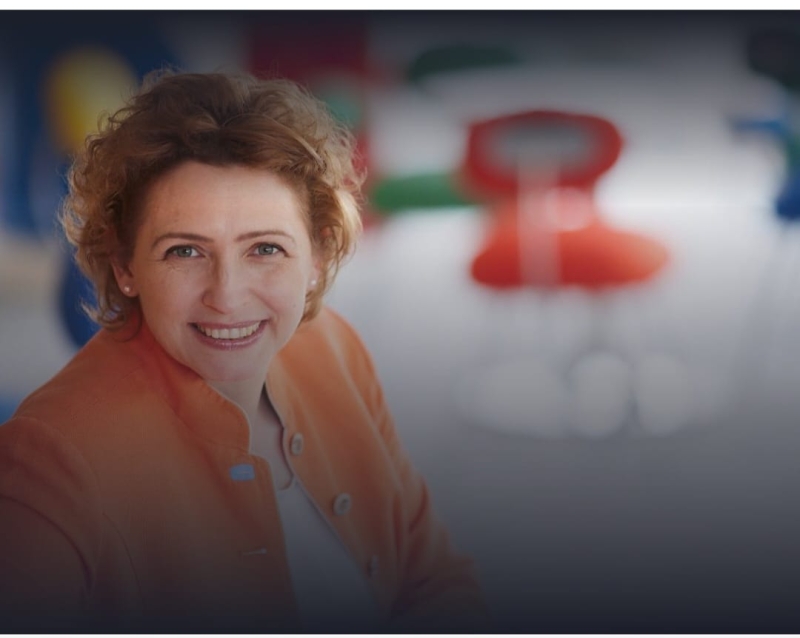- Trump considering military options on Greenland; Europe rejects |
- Fertiliser crunch threatens Kushtia’s onion boom despite high prices |
- Security Council Divided on United States' Venezuela Action |
- Over 1.53m voters register for postal balloting: Shafiqul Alam |
- Bangladesh Bank to liquidate 9 NBFIs in financial sector reforms |
EIB Vice President set to visit Dhaka for talks on Bangladesh-EU cooperation

Dhaka, 6 Jan – European Investment Bank (EIB) Vice-President Nicola Beer is set to visit Dhaka on Tuesday for a three-day trip to review existing partnerships, discuss various issues and explore expanded investment cooperation with the interim government.
The EIB, owned by the 27 EU member states, is the world's largest multilateral financial institution and serves as the European Union's investment bank.
Vice-President Beer oversees policy priorities, critical raw materials, EU Multiannual Financial Framework (MFF) and financing operations in South, Southeast and East Asia.
"A number of meetings have been lined up, including a meeting with Chief Adviser Prof Muhammad Yunus," a senior official told UNB on Monday.
While climate action is a big part of EIB activities, it also focuses on the environment, development, innovation and skills, small and medium-sized businesses (SMEs), infrastructure and cohesion.
Vice-President Beer, during her stay in Dhaka, will also hold meetings with Finance and Planning Adviser Dr Salehuddin Ahmed, Foreign Affairs Adviser Md Touhid Hossain, Power, Energy and Mineral Resources; Railways Adviser Muhammad Fouzul Kabir Khan, Environment, Forest and Climate Change, Water resources Adviser Syeda Rizwana Hasan, Local Government, Rural Development and Co-operatives Adviser Asif Mahmud Shojib Bhuyain and Bangladesh Bank Governor Ahsan H Mansur to discuss wide range of issues, officials at the relevant ministers said while speaking to the UNB correspondent.
She will also have a breakfast meeting with the representatives of the KfW, AfD, ADB, IMF, WB, IFC and JICA.
The Vice President will have an interaction over dinner with the European Union Chamber of Commerce in Bangladesh (EuroCham).
During its launching, the EU Ambassador to Bangladesh, Michael Miller, expressed the EU’s intention to partner intensively with EuroCham to maximise trade and investment, explore more intensive B2B contacts, navigate the challenges of LDC graduation and promote sustainable due diligence in supply chains, opening up the prospect of greater EU FDI and a more diversified Bangladeshi economy.
She is likely to visit Ghandharbpur Water Treatment Plant on Thursday before wrapping up her visit.
Prof Yunus recently urged the European Union (EU) to extend support to Bangladesh to transform its energy sector.
“We look forward to your cooperation on that…we also talked to other countries to provide us support for transformation of our energy sector,” he said during an interactive session with the diplomats of European countries, stationed in Dhaka and New Delhi last month.
Chief Adviser Prof Yunus said the environment is, of course, a top priority for them. Bangladesh is a victim of environmental degradation that is taking place, Prof Yunus said, adding, “In one area, I get very interested – renewable energy”.
The EIB finances and invests both through equity and debt solutions companies and projects that achieve the policy aims of the European Union through loans, equity and guarantees.
Since its establishment in 1958, the EIB has invested over a trillion euros in projects in Europe and countries worldwide.
The EIB’s climate and energy goals are setting new standards in Europe and beyond.
It does not back fossil fuel projects, and it devotes more than 50% of its investments to climate action and sustainability.
EIB investments support the green transition.
As the EU climate bank, the EIB is helping to meet the commitments of the Paris Agreement — the international treaty on climate change — and the United Nations’ Sustainable Development Goals.
They pledged €1 trillion in investment for the climate and the environment by 2030, and are on track to meet that target.
The EIB’s operations accelerate green growth and the decarbonisation of economies and it supports energy efficiency and renewable energy projects, which help to reduce carbon emissions and strengthen energy security.
EIB investments also fight the effects of climate change on vulnerable communities, protecting biodiversity and promoting sustainable farming.
Every project that the EIB supports, whether for innovation, small businesses or infrastructure, it remains aligned with their climate goals.
EIB Global, the EIB’s development arm, brings all the resources of the Bank to bear on its operations outside the European Union.

